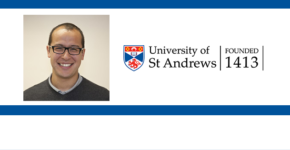Category: Psychology
-

Jeffrey Hall, University of Kansas – Sense of Humor in Relationships
We all want a partner with a great sense of humor, right? Jeffrey Hall, associate professor in the department of communication studies at the University of Kansas, wonders whether the humor couples create together is better than just appreciating humor overall. Jeffrey Hall is an Associate Professor of Communication Studies at University of Kansas. He…
-

David Yamane, Wake Forest University – Religion & Guns
It is often said that people cling to their guns and their religion. David Yamane, professor of sociology at Wake Forest University, explores if the religious really do cling to their guns. David Yamane earned his B.A. (’91) in sociology from the University of California at Berkeley and his M.S. (’94) and Ph.D. (’98) in…
-

Matthew DeLisi, Iowa State University – Homicidal Ideation
To understand why some commit crimes, get inside their head. Matthew DeLisi, professor in the department of sociology at Iowa State University, determines if homicidal ideation is a factor in whether some criminals commit more serious crimes. Matt DeLisi is Coordinator of Criminal Justice Studies, Professor in the Department of Sociology, and Faculty Affiliate of…
-

Dale Fink, Massachusetts College of Liberal Arts – Recess
Recess is a favorite among elementary school students. Dale Fink, associate professor of education at the Massachusetts College of Liberal Arts, explains what happens when recess is taken away for bad behavior. Dr. Fink came to MCLA in 2006 after a career spanning 35 years in childcare, early childhood education, out-of-school time care, and research…
-

Akira O’Connor, University of St. Andrews – Deja Vu
Are you having déjà vu? Akira O’Connor, Lecturer in the School of Psychology & Neuroscience at the University of St. Andrews, discusses a new insight into this mysterious phenomenon. I am interested in how contextual information and our expectations help (and hinder) the judgements we make about our memories. My research employs laboratory, online and…
-

Craig Smith, University of Michigan – Children and Confessions
How do you get children to fess up to bad behavior? Craig Smith, research investigator at the University of Michigan, explores how reacting positively might help increase confessions. Dr. Craig Smith’s research focuses on children’s social cognitive development and links to social behavior. Examples of specific areas of interest are: children’s developing understanding of distributive…
-

Xiaosi Gu, University of Texas at Dallas – Effects of Belief on Nicotine Cravings
Is your brain to blame for your nicotine craving? Xiaosi Gu, Assistant Professor at the School of Behavioral and Brain Sciences at the University of Texas at Dallas, explores this question. In 2015, Dr. Xiaosi Gu established the Computational Psychiatry Unit at the Center for BrainHealth, part of The University of Texas at Dallas where…
-

Elizabeth Bryda, University of Missouri – Probiotics Can Reduce Stress Levels and Anxiety
Need to reduce your stress? Maybe the answer is in your yogurt. Elizabeth Bryda, Professor in the Department of Veterinary Pathobiology at the University of Missouri, discusses probiotics and how they can help calm you down. Our laboratory takes a comparative medicine approach to studying human disorders by using a variety of animal models of…
-

Aris Karagiorgakis, Black Hills State University – Coloring Books and Art as Therapy
Stressed out? Try a coloring book. Aris Karagiorgakis, Associate Professor of Psychology at Black Hills State University, examines the adult coloring book fad. Dr. Aris Karagiorgakis is an Associate Professor of Psychology at Black Hills State University who conducts research in two areas: art as therapy and the effectiveness of art intervention programs. His current…

